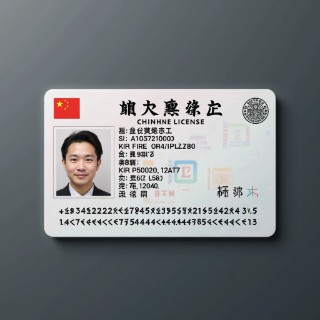What Makes a Digital Brokerage Truly Secure? Let’s Talk About It
-
totositereport New
The brokerage landscape has changed faster than most of us could have imagined. Ten years ago, many investors preferred physical paperwork and in-person advisors. Today, the most active markets operate entirely online — trades, transfers, and portfolios move through digital infrastructure every second.
That shift brings freedom, but also risk. As brokers and clients rely more on encrypted systems and remote verification, we’re forced to redefine what “secure” actually means. Is it just about preventing hacks, or does it include transparency, fair governance, and user education?
How do you personally define a secure digital brokerage? Does your confidence come from technology, regulation, or the people behind the system?
Why the Community Conversation Matters
Security isn’t a product you buy — it’s a relationship you maintain. A platform can publish all the right credentials, yet users might still feel uneasy if communication is opaque or support is slow. That’s why ongoing dialogue between investors, brokers, and tech specialists is essential.
When people share stories of breaches, recovery, or improved safety practices, others learn from real experiences. Communities help convert technical safety measures into understandable terms.
Have you ever changed platforms because of community feedback or safety discussions? What made those opinions credible to you?
Transparency as the Cornerstone of Confidence
In every conversation about brokerage safety, transparency eventually surfaces. It’s the glue between technology and trust. A secure platform should disclose its licensing details, data-handling partners, and system audits openly — not hide them in fine print.
In some industries, groups like gaminglabs publish independent verification results that show whether digital systems meet international testing standards. Imagine if brokerages embraced that level of transparency, releasing plain-language summaries of their security certifications and test outcomes.
Would such open reporting help you trust a platform more, or would you still prefer independent verification from regulators?
The Human Factor Behind Security
We often talk about encryption and blockchain, but human behavior remains a weak link in most digital ecosystems. Even the best-designed platform can be compromised by poor password habits, misdirected emails, or social engineering.
That’s why user education is as critical as code. A secure brokerage should empower its clients — teaching them how to enable two-factor authentication, recognize phishing attempts, and handle credentials safely.
Have you received useful security training or guidance from your brokerage? If so, how did it change your day-to-day behavior online?
Collaboration Between Brokers and Users
A digital brokerage isn’t just a service provider — it’s a partner in risk management. That partnership works best when communication channels stay open. When clients can flag suspicious activity or inconsistent data, brokers can respond faster, potentially preventing larger issues.
This shared vigilance resembles how consumer watchdog communities monitor financial products. As users report incidents collectively, patterns emerge — allowing everyone to learn faster.
Would you feel comfortable reporting a security concern publicly if it meant protecting other users? How can brokerages make that process safer and more accessible?
Balancing Privacy With Accountability
A major discussion point within security circles is the balance between protecting user privacy and maintaining accountability. Investors want their personal information secure, yet regulators and auditors need enough access to ensure compliance.
The next evolution of brokerage systems may involve user-controlled verification, where clients can selectively share encrypted data with regulators — a concept already gaining traction in discussions about the Future of Credit Platforms.
Do you think this kind of selective transparency could work in trading environments? Would you be willing to share more data if you had full control over who saw it and when?
Building Shared Standards for Verification
Right now, every brokerage defines “security” differently. Some focus on compliance certificates, others on encryption, and a few emphasize community governance. Without shared standards, comparisons become confusing for users trying to decide which platforms to trust.
Imagine if a cross-industry verification network existed — a decentralized registry that listed every brokerage’s audit history, breach record, and data-protection level. It could function similarly to certification networks in other digital sectors, combining regulatory oversight with community validation.
If such a system existed, would you contribute ratings or reviews to help keep it accurate? What safeguards would you want in place to prevent manipulation?
When Technology Evolves Faster Than Regulation
Digital brokerages often adopt innovations — from automated investing tools to AI-based risk scoring — long before regulations catch up. This speed gap leaves users navigating gray areas without clear guidance on accountability.
It’s a familiar story: technology outruns oversight, and users become the first to test what’s safe or not. Some investors welcome that freedom; others feel exposed.
Should regulators adapt by focusing on flexible frameworks rather than fixed rules? How much responsibility should users take in self-educating before entering new financial systems?
Toward a Community-Defined Model of Safety
Security isn’t static — it’s cultural. It thrives in ecosystems where everyone plays a role: developers writing clean code, brokers maintaining transparency, and users practicing good digital hygiene.
Community engagement can help create a “living standard” — one that evolves with threats and technologies. Imagine annual community reviews where users, auditors, and engineers evaluate how brokerages uphold safety commitments. That’s the kind of cooperative accountability that keeps systems honest.
Would you participate in that kind of open audit discussion? Do you think user-led forums can drive industry change, or must it come from regulation first?
The Next Step: Making Security Collaborative
We’ve reached a stage where secure digital brokerage can’t just mean encryption and compliance checkboxes. It has to mean shared confidence.
The Future of Credit Platforms points to an ecosystem where users expect transparency dashboards, real-time audit visibility, and community input on governance. If brokerages borrow that philosophy — combining technological rigor with open participation — they’ll turn clients into allies rather than silent observers.
Meanwhile, groups like gaminglabs show how third-party testing can evolve from niche compliance to industry-wide trust certification. When brokerage systems adopt similar independent validation, the conversation about “security” won’t be theoretical — it’ll be demonstrable.
So let’s keep the dialogue active. What steps could your favorite brokerage take to make you feel genuinely part of its safety ecosystem? Would you rather see stricter regulation, or more collaborative verification led by users themselves?
The answers we share now may shape how digital brokerage — and online finance as a whole — defines trust in the decade ahead.



